Alcohol and Drug Abuse Institute
Learn More Advocacy & Civic Engagement | Diversity, Equity & Justice | Health & Well Being | Policy & Law |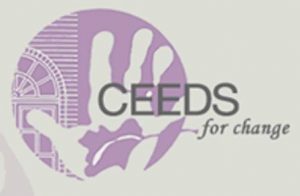
The Applied Research Consortium (ARC) is rooted in the idea that collaboration across academia and industry will accelerate progress in our fields. ARC brings together an interdisciplinary group of built environment firms with faculty experts and graduate student researchers at the University of Washington’s College of Built Environments (CBE) to address the most vexing challenges…
Learn More Advocacy & Civic Engagement | Design & Building | Education | Health & Well Being | Land Use & Planning |The Applied Research Consortium (ARC) connects students, faculty, and industry partners for applied research. ARC brings together research, practice, and education; generates new ideas and solutions for the built environment; supports diversity and intercultural skills among student fellows; and enhances impact and connections for academic and firm partners alike.
Learn More Advocacy & Civic Engagement | Design & Building | Diversity, Equity & Justice | Education |The Biodemography Laboratory, as the heart of the Biodemography Core at the Center for Studies in Demography and Ecology (CSDE), conducts population level research in human ecology and biodemography. We specialize in developing, optimizing, and carrying out biomarker assays for large scale research projects. We merge methods and theory from biology, demography and anthropology to…
Learn More Data Science & Spatial Analysis | Diversity, Equity & Justice |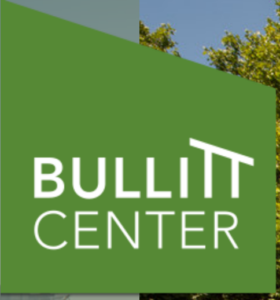
The UW-Center for Integrated Design (CID), a self-sustaining entity of the University of Washington, is located on the second floor of the Bullitt Center, serving as the home for the Integrated Design Lab and the Discovery Commons. The Integrated Design Lab (IDL) carries out research and technical assistance aimed at advancing knowledge and implementation of…
Learn More Design & Building | Education | Health & Well Being | Innovation & Technology | Natural Resources & Environment |The Carbon Leadership Forum (CLF) is an industry-academic collaborative research effort. CLF is working to link the rigor of Life Cycle Assessment (LCA) based carbon accounting to industry best practices in order to enable quantifiable reduction to the environmental impact of the built environment. Its research is focused on developing the data, analysis, and standards…
Learn More Climate & Energy | Data Science & Spatial Analysis | Design & Building | Natural Resources & Environment |The Cascadia Coastlines and Peoples Hazards Research Hub is a team of researchers funded by the National Science Foundation to increase resilience and advance knowledge about natural hazards and climate change risks coastal communities face.
Learn More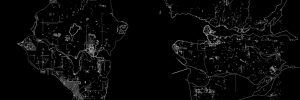
Over 80% of the planet is affected by increased urbanization – a clarion call for evidence-based innovation to improve the resiliency, health,and well-being of cities and their inhabitants. To lead a focused response, the University of Washington (through a partnership between the UW eScience Institute and Urban@UW) and the University of British Columbia (through a…
Learn More Data Science & Spatial Analysis | Housing & Homelessness | Infrastructure & Transportation | Innovation & Technology |The Center for American Politics and Public Policy, established at the University of Washington in 1996 and directed by Professor John Wilkerson, is a focal point for the study of politics and public policy processes in the United States. The primary intellectual objectives of CAPPP include: (1) fostering internationally recognized research by faculty and students…
Learn More Education | Policy & Law |The ARCH Center serves as a community-driven academic hub focused on the critical interrogation and disruption of racism and racialization within systems while centering those most impacted by legacies of U.S. colonization. Guided by anti-racism, critical race theory, and community-based participatory research principles, the ARCH Center’s research will focus on testing strategies to break down…
Learn More Advocacy & Civic Engagement | Diversity, Equity & Justice | Health & Well Being |The Center for Asian Urbanism is established to promote and undertake interdisciplinary and collaborative research of urban conditions and processes in Asia and the “Global Pacific” – i.e. the relevancies of cities and city-regions in Asia to each other, to the Pacific Northwest of the U.S., and to the world at large. Specifically, the Center…
Learn More Design & Building | Economy & Development | Land Use & Planning | Policy & Law |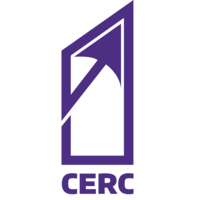
The Center for Education and Research in Construction (CERC) is a locus of research, scholarship and discovery in the UW’s Department of Construction Management and allied disciplines of architecture, engineering and real estate. Focused on the people and practices of a dynamic, innovative construction industry, CERC develops new concepts and innovative solutions as well as…
Learn More Design & Building | Health & Well Being | Infrastructure & Transportation | Innovation & Technology |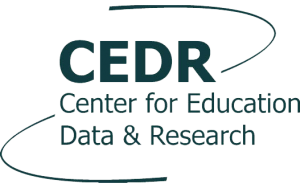
The Center for Education Data and Research focuses on the relationship between education and social service policies and practices. Founded in 2010, CEDR examines questions of educational opportunity, access and success, examining them through a quantitative lens. Its researchers are particularly interested in examining policies and interventions that help disadvantaged groups. One of CEDR’s strengths…
Learn More Data Science & Spatial Analysis | Diversity, Equity & Justice | Education | Policy & Law |
The Center for Educational Leadership helps districts close the achievement gap through effective instruction. But teachers can’t do it alone: both school and district leaders have to create a culture of learning and support for teachers to excel. Our nationally recognized experts, working with research-based methods, help all levels of a school system improve achievement…
Learn More Education |
Our mission is to play a leadership role in producing and disseminating empirical social science research on new modes of environmental politics and governance at local, regional, national, and global levels. Within the University of Washington, we facilitate faculty and graduate students to build connections, establish networks, and initiate truly multi‐disciplinary conversations about the political…
Learn More Climate & Energy | Natural Resources & Environment | Policy & Law |
The Center for Global Studies (CGS) is dedicated to fostering language excellence, international studies expertise, and global literacy in the Pacific Northwest and throughout the nation with the overall objective of enhancing the nation’s capacity to address contemporary global challenges. The Center is especially focused on increasing the diversity of students engaged in international studies…
Learn More Arts & Culture | Diversity, Equity & Justice | Economy & Development | Education | Health & Well Being | Natural Resources & Environment | Policy & Law |CHANGE collaboratively develops and promotes innovative approaches to understanding and managing the risks of global environmental change. CHANGE conducts research and policy analysis, education and training, and technical assistance and capacity building, integrating health, environmental, and social sciences. CHANGE focuses on health outcomes associated with the consequences of global environmental changes, such as extreme weather…
Learn More Climate & Energy | Diversity, Equity & Justice | Food | Health & Well Being | Natural Hazards | Natural Resources & Environment | Water |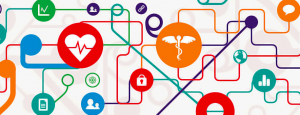
The University of Washington Department of Health Systems and Population Health (HSPop) prepares future health practitioners, managers, and researchers to conduct the work of improving the well-being of communities in the United States and throughout the world. We envision a future where systems effectively, efficiently, and equitably promote the health of all populations. We are…
Learn More Diversity, Equity & Justice | Health & Well Being | Innovation & Technology |
The University of Washington Center for Human Rights is committed to interdisciplinary excellence in the education of undergraduate and graduate students in the field of human rights; promoting human rights as a core area of faculty and graduate research; and engaging productively with local, regional, national, and international organizations and policymakers to advance respect for…
Learn More Diversity, Equity & Justice | Policy & Law |
The mission of the Center for Integrated Design is to discover solutions that overcome the most difficult building performance barriers, and to meet the building industry’s goals of moving towards radically higher performing buildings and healthy urban environments. The Center for Integrated Design, composed of the Integrated Design Lab and the Discovery Commons, builds knowledge…
Learn More Advocacy & Civic Engagement | Climate & Energy | Design & Building | Economy & Development | Education | Health & Well Being | Innovation & Technology | Natural Resources & Environment |The Center for Journalism, Media and Democracy (formerly The Center for Communication and Civic Engagement) is dedicated to understanding communication processes and media technologies that facilitate democracy. CJMD is located in the Department of Communication at the University of Washington. Students and faculty at the center work together on original research, educational programs, and public…
Learn More Advocacy & Civic Engagement | Arts & Culture | Innovation & Technology | Policy & Law |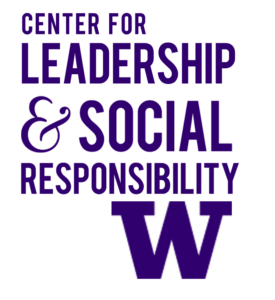
The Center for Leadership & Social Responsibility champions educational opportunities and innovative solutions to address pressing social, business, and environmental issues. We develop ethical leaders, create mutually beneficial partnerships, and empower students to positively contribute to communities in the South Puget Sound region, while learning from community leaders. Vision The CLSR serves the South Puget…
Learn More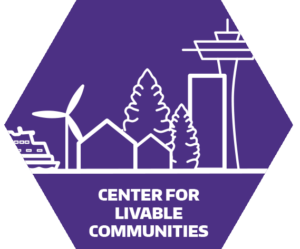
The mission of the Center for Livable Communities is to enhance the livability of communities in the Pacific Northwest through applied research and outreach in the areas of land use planning, policy, and design; healthy communities; food security; and public participation and democracy. The Center is a research and policy center focused on issues of…
Learn More Advocacy & Civic Engagement | Climate & Energy | Design & Building | Economy & Development | Food | Health & Well Being | Land Use & Planning | Natural Resources & Environment | Policy & Law |
One Health is an integrated, transdisciplinary approach to health problems involving humans, animals and the rapidly changing environments we share. These problems are complex and interconnected. They require new scientific and professional competencies to understand and address them. One Health incorporates multiple perspectives to assess the underlying causes of these health challenges and to develop…
Learn More Advocacy & Civic Engagement | Diversity, Equity & Justice | Health & Well Being |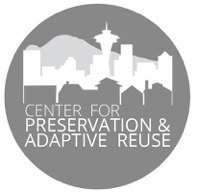
The Center for Preservation and Adaptive Reuse (CPAR) is a research, education and advocacy center that recognizes the value of our existing historic and non-historic buildings. The center produces innovative research, advances knowledge, and promotes educational initiatives addressing the reuse and preservation of the built environment at all scales. The center recognizes that existing buildings…
Learn More History & Preservation |
The Center for Public Health Nutrition’s mission is to: Advance public health approaches to improve nutrition and physical activity through environmental and policy change Build partnerships and collaborations with practitioners, government agencies and communities Provide technical assistance in the translation of research into policy and practice Shape obesity and chronic disease prevention and reduction efforts
Learn More Food | Health & Well Being | Policy & Law |The Center for Social Science Computation and Research (CSSCR) is a resource center for the social science departments at the University of Washington. The Center provides numerous computers, computer consulting, a data archive, and support of classwork and research on campus.
Learn More Advocacy & Civic Engagement | Education |The University of Washington Center for Southeast Asia & its Diasporas (CSEAD) is a National Resource Center for Southeast Asian Studies funded by the U.S. Department of Education pursuant to Title VI of the Higher Education Act (HEA). Established in 1986, the Center and the Southeast Asia Studies Program are a source of information on…
Learn More Advocacy & Civic Engagement | Arts & Culture | Diversity, Equity & Justice | Economy & Development | Education | Health & Well Being | History & Preservation | Policy & Law |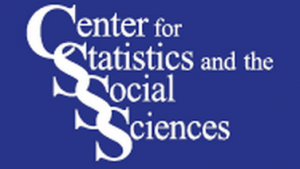
The Center for Statistics and the Social Sciences started in 1999, with funding from the University Initiatives Fund. It was the first center in the nation devoted to this interface, with the triple mission of galvanizing collaborative research between social scientists and statisticians, developing a menu of new graduate courses for social science students, and…
Learn More Data Science & Spatial Analysis | Economy & Development | Health & Well Being | Policy & Law |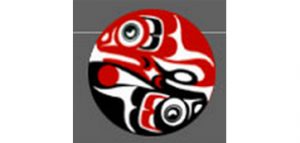
The Center for Studies in Demography and Ecology (CSDE) supports population research and training at the University of Washington. It also functions as a regional center that gives population scientists at affiliated institutions in the Pacific Northwest access to cutting-edge demographic infrastructure and services. The core of CSDE consists of a large group of productive…
Learn More Advocacy & Civic Engagement | Arts & Culture | Data Science & Spatial Analysis | Diversity, Equity & Justice | Economy & Development | Health & Well Being | History & Preservation | Infrastructure & Transportation | Policy & Law |The Center for the Study of the Pacific Northwest is dedicated to advancing scholarship on the Pacific Northwest, and the North American West more generally, with an emphasis on historical research. Located in the Department of History at the University of Washington, we support research, teaching, and public programs that promote and disseminate knowledge on…
Learn More Arts & Culture | History & Preservation |The Center for Urban Horticulture, opened in 1984, is part of the University of Washington Botanic Gardens. It includes a 16-acre landscaped site with buildings and gardens, and the 74-acre Union Bay Natural Area, which provides publicly accessible wildlife habitat (more than 200 bird species have been sighted there) and an outdoor laboratory for UW…
Learn More Food | Health & Well Being | Natural Resources & Environment |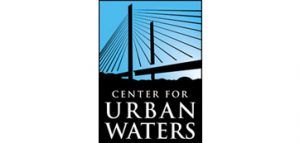
Research conducted by University of Washington Tacoma scientists at the Center for Urban Waters seeks to understand and quantify the sources, pathways and impacts of chemical pollutants in urban waterways.Highly sensitive analytical tools to measure contaminant levels are combined with sophisticated computer models to track pollutant sources and transport in the Puget Sound region. UW…
Learn More Data Science & Spatial Analysis | Health & Well Being | Infrastructure & Transportation | Natural Hazards | Natural Resources & Environment | Water |University of Washington Tacoma research at the Center for Urban Waters (CUW) is a highly collaborative university-led applied science program dedicated to finding globally-applicable solutions to urban water quality problems in the Pacific Northwest. Founded in 2010, CUW has become an important part of the conversation around the restoration, protection, and future of Puget Sound.…
Learn More
The Center for West European Studies (CWES) was founded in 1994. Our mission is to enhance the quality of teaching and research on West European politics, society, and culture through outreach to universities, community colleges, business, the general public, and the K-12 community. The Center’s programs are uniquely interdisciplinary, fostering collaboration between Europeanists from twenty…
Learn More Arts & Culture | Education | Policy & Law |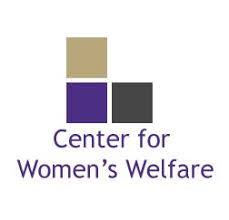
Created to advance economic justice for women and their families, the Center for Women’s Welfare researches issues around income inequality and economic opportunity. Its primary tool is the Self-Sufficiency Standard, which measures how much income is needed to meet basic living needs without additional public or private support.
Learn More Diversity, Equity & Justice | Economy & Development |
Change is a group at the University of Washington exploring how technology can improve the lives of underserved populations in low-income regions. Change’s members primarily come from Computer Science and Engineering (CSE), Technology and Social Change (TASHA),Information School (iSchool), Evans School of Public Affairs (Evans), Human Centered Design and Engineering (HCDE), Bio and Health Informatics…
Learn More Economy & Development | Health & Well Being | Innovation & Technology |The Circular City + Living Systems Lab (CCLS) is an interdisciplinary group of faculty and students researching living systems integrated into the built environment that produce and circulate resources within the food-water-energy nexus. Synthesizing expertise from architecture, landscape architecture, engineering, planning, biology, and ecology, the CCLS applies principles of research and design to investigate transformative…
Learn More Climate & Energy | Design & Building | Economy & Development | Food | Infrastructure & Transportation | Innovation & Technology | Natural Hazards | Natural Resources & Environment | Water |
CEI’s mission is to accelerate the adoption of a scalable clean energy future that will improve the health and economy of our state, nation, and world. To accomplish this mission, CEI supports the advancement of next-generation solar energy and battery materials and devices, as well as their integration with systems and the grid. The institute…
Learn More Climate & Energy | Infrastructure & Transportation | Innovation & Technology | Natural Resources & Environment |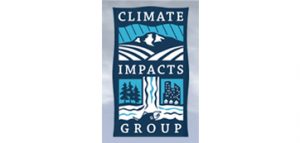
The Climate Impacts Group (CIG) is an internationally recognized interdisciplinary research group studying the impacts of natural climate variability and global climate change (“global warming”). Research at the CIG considers climate impacts at spatial scales ranging from local communities to the entire western U.S. region, with most work focused on the Pacific Northwest (PNW). Through…
Learn More Climate & Energy | Diversity, Equity & Justice | Land Use & Planning | Natural Resources & Environment |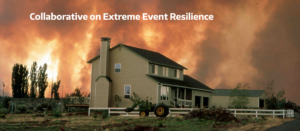
CEER is a boundary breaking collaboration of researchers and scholars committed to policy relevant, community-driven research. We empower communities to use scientific methods to solve real world problems and build resilience to acute and chronic stressors. We are public health scholars committed to working with policy-makers, practitioners, and community-based organizations to collaboratively generate evidence, as…
Learn More Climate & Energy | Data Science & Spatial Analysis | Innovation & Technology | Natural Hazards |The Community Engagement and Leadership Education (CELE) Center provides students with opportunities to develop the knowledge, skills and attitudes needed to contribute to thriving communities; building authentic community and campus partnerships drive our work. Our programs are centered around the areas of community-engaged learning, democratic engagement, leadership education, preK-12 student success and place-based initiatives. Build…
Learn More Advocacy & Civic Engagement | Diversity, Equity & Justice |CoMotion is the collaborative hub for expanding the societal impact of the UW community. We deliver the tools and connections that UW researchers and students need to accelerate the impact of their innovations. We are bringing together the broader community, to stimulate the collective impact that UW students and researchers are making in the world.…
Learn More Diversity, Equity & Justice | Economy & Development | Innovation & Technology |The CoMotion Innovation Fund (formerly the Commercialization Gap Fund) is a partnership between CoMotion and the Washington Research Foundation to provide up to $1 million per year for applied research. Our mission is to fund and support projects that have a high chance of being commercialized but are unlikely to get there without gap funding.…
Learn More Economy & Development | Innovation & Technology |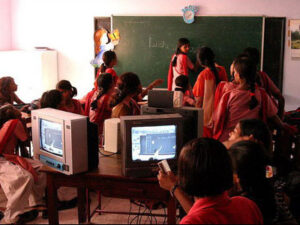
Research in information and communication technologies for development (ICTD) is a relatively new and important area in computing research. When deploying systems in highly resource-constrained environment (unsophisticated users, lack of reliable power, expensive or non-existent data connectivity, etc.) they must be designed to be much more robust than when designing for the developed world. This…
Learn More Data Science & Spatial Analysis | Diversity, Equity & Justice | Economy & Development | Innovation & Technology |
We accelerate student careers and grow businesses and jobs in communities where they’re needed the most. By engaging students in solving complex, unstructured, real-world challenges students learn to think strategically, develop leadership skills, and integrate knowledge across business disciplines. More than 95% of students who participate in the Center’s programs report improved job performance after…
Learn More Advocacy & Civic Engagement | Diversity, Equity & Justice | Economy & Development |
The DataLab is the nexus for research on Data Science and Analytics at the UW iSchool. We study large-scale, heterogeneous human data in an effort to understand why individuals, consumers, and societies behave the way they do. Our goal is to use data for the social good, in an ethical manner that can inform policy…
Learn More Data Science & Spatial Analysis | Diversity, Equity & Justice | Economy & Development | Infrastructure & Transportation | Innovation & Technology |
The DDI group researches diversity and technology from a design perspective. The group focuses on technology development for resource constrained environments in order to counteract what could be called a failure of imagination in terms of how devices, software, and services are designed. With the advent of newer, smaller, and cheaper technologies, the user base…
Learn More Advocacy & Civic Engagement | Diversity, Equity & Justice | Economy & Development | Innovation & Technology |Design Machine Group (DMG) is a collaborative research studio aimed at exploring, fostering, and developing ideas that will shape the future of design and information technology. The lab serves as the primary home of students in the MS in Architecture Program in Design Computing.
Learn More Data Science & Spatial Analysis | Design & Building | Innovation & Technology |We are a group of data scientists and trainees who research how to leverage data to help others before, during, and after disasters. Globally, frequency and intensity of disasters are rising. We tackle pressing and challenging problems of disaster research by collecting and analyzing data to suggest evidence-based remedies.
Learn More Data Science & Spatial Analysis | Natural Hazards |
The District Leadership Design Lab (DL2) gives districts across the country a hands-on partner with the know-how to help central offices lead to improve results for all students. We partner with school districts across the country to help create high-performing central offices and districtwide systems that enable principals to lead and teachers to teach for…
Learn More Education |
The DO-IT (Disabilities, Opportunities, Internetworking, and Technology) Center is dedicated to empowering people with disabilities through technology and education. It promotes awareness and accessibility—in both the classroom and the workplace—to maximize the potential of individuals with disabilities and make our communities more vibrant, diverse, and inclusive.
Learn More Diversity, Equity & Justice | Innovation & Technology |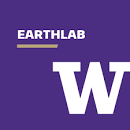
As a Carnegie-classified Community Engagement University, the University of Washington (UW) aspires to be the #1 university in the world as measured by impact. EarthLab is a visionary institute at the UW that pushes boundaries to address our most pressing environmental challenges, with urgency and action on climate and its intersection with social justice. We…
Learn More Arts & Culture | Climate & Energy | Data Science & Spatial Analysis | Innovation & Technology | Natural Resources & Environment |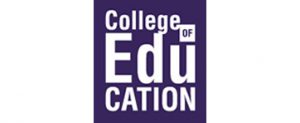
Education, Equity, & Society is an intellectual community within the College of Education that encourages students to explore the meaning, purpose, and significance of education in diverse community contexts with the aim of contributing to local and global educational equity and social change. We are an interdisciplinary group that draws on expertise in several traditions…
Learn More Diversity, Equity & Justice | Education | History & Preservation | Policy & Law |The ESC lab promotes energy efficiency and sustainability (EES) in the built environment through the development of sustainable design and construction practices and risk-based financial models for EES investments. We aim to integrate advanced financial analysis, project development, and management strategies used during the delivery of energy-efficient buildings and sustainable infrastructures. With this work, ESC…
Learn More Climate & Energy | Design & Building | Economy & Development | Infrastructure & Transportation | Natural Resources & Environment |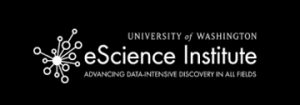
The eScience Institute empowers researchers and students in all fields to answer fundamental questions through the use of large, complex, and noisy data. As the hub of data-intensive discovery on campus, we lead a community of innovators in the techniques, technologies, and best practices of data science and the fields that depend on them.
Learn More Data Science & Spatial Analysis | Diversity, Equity & Justice | Economy & Development | Innovation & Technology |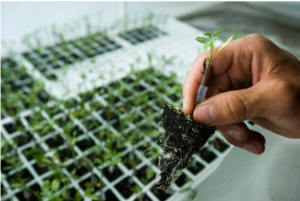
Established in 2008, the Evans School Policy Analysis and Research Group (EPAR) uses an innovative student-faculty team model to provide rigorous, applied research and analysis to international development stakeholders. EPAR has prepared more than 300 technical reports and briefs including: statistical data analysis and research, literature reviews and analysis, and portfolio analysis and strategy support.…
Learn More Advocacy & Civic Engagement | Diversity, Equity & Justice | Economy & Development | Education | Food | Health & Well Being | Natural Resources & Environment | Policy & Law |
Our mission is to develop global business expertise by hosting and sponsoring outstanding international education initiatives. As home to one of only 17 federally-funded Centers for International Business Education and Research (CIBER), the GBC works in partnership with the U.S. Department of Education to contribute to the international understanding and competitiveness.
Learn More Diversity, Equity & Justice | Economy & Development | Education |
The University of Washington’s Global Innovation Exchange (GIX) is a university-industry nexus for interdisciplinary education in technology innovation. In partnership with corporate, government and non-profit organizations, GIX delivers transformational learning experiences through world-class graduate and professional development programs. Mission: GIX inspires innovators to solve real-world challenges through the responsible application of advanced technologies. Vision: GIX…
Learn More
Metro nature - including trees, parks, gardens, and natural areas - enhance quality of life in cities and towns. The experience of nature improves human health and well-being in many ways. Nearly 40 years of scientific studies tell us how. Here's the research ...
Learn More Advocacy & Civic Engagement | Health & Well Being | Infrastructure & Transportation | Land Use & Planning | Natural Resources & Environment |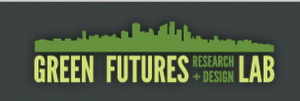
The Green Futures Lab mission is to support interdisciplinary research and design that advances our understanding of, visions for, and design of a vital and ecologically sustainable public realm. Apply Green Futures research and designs to policy develop potential urban green infrastructure solutions within Seattle and the Pacific Northwest region and work with the University…
Learn More Design & Building | Health & Well Being | Infrastructure & Transportation | Innovation & Technology | Land Use & Planning | Natural Resources & Environment | Water |
The Harborview Injury Prevention & Research Center (HIPRC) is dedicated to reducing the impact of injury and violence on peopleʼs lives through research, education, training, and public awareness. HIPRC’s goal is to reduce the rates of injury and death from unintentional events such as car crashes and drownings, and from purposeful violent acts such as…
Learn More Diversity, Equity & Justice | Health & Well Being |The University of Washington Haring Center for Inclusive Education provides early childhood education to children with and without disabilities, conducts leading-edge research to advance inclusive learning, and trains education professionals in proven practices to develop every child’s potential. The essential support of our generous donors creates inclusive communities that empower all children to learn, play…
Learn More Diversity, Equity & Justice | Education |Harry Bridges’ unique combination of pragmatic organizing ability, democratic unionism, commitment to racial desegregation, and outspoken engagement with issues of social justice continues to serve as the touchstone of the Center’s mission. Supporting research, teaching, and community outreach, The Center focuses on labor’s contribution to society. The Center promotes the study of labor in all…
Learn More Diversity, Equity & Justice | Economy & Development |The Health Promotion Research Center (HPRC) is one of 26 Prevention Research Centers funded by the Centers for Disease Control and Prevention. We conduct community-based research that promotes the health and well-being of middle-aged and older adults, particularly those with lower incomes and in ethnic/cultural minority populations most at risk of health disparities. We are…
Learn More Diversity, Equity & Justice | Health & Well Being |
The Human Centered Data Science Lab, directed by Dr. Cecilia Aragon, conducts research on human-computer interaction in scientific collaborations, collaborative creativity, cyberinfrastructure, eScience, information visualization, and how social media and computer-mediated communication are changing scientific practice.
Learn More Data Science & Spatial Analysis | Innovation & Technology |The HINTS lab seeks to address - from a psychological stance - two world trends that are powerfully reshaping human existence: The degradation if not destruction of large parts of the natural world, and Unprecedented technological development, both in terms of its computational sophistication and pervasiveness.
Learn More Economy & Development | Innovation & Technology | Natural Hazards | Natural Resources & Environment |
Welcome to Humanistic GIS Laboratory (HGIS Lab)! This Lab is committed to exploring the Digital Earth as the home of humankind. Driven by this common interest, a group of UW scholars and student researchers have been working together (1) to explore innovative methodologies to improve geospatial technologies with the consideration of human experience, (2) to…
Learn More Data Science & Spatial Analysis | Diversity, Equity & Justice | Innovation & Technology |
The Indigenous Wellness Research Institute’s vision is to support the inherent rights of Indigenous peoples to achieve full and complete health and wellness by collaborating in decolonizing research and knowledge building and sharing. Our mission is to marshal community, tribal, academic, and governmental resources toward innovative, culture-centered interdisciplinary, collaborative social and behavioral research and education
Learn More Diversity, Equity & Justice | Health & Well Being |The Institute for Hazards Mitigation Planning and Research is dedicated to integrating hazards mitigation principles into a wide range of crisis, disaster, and risk management opportunities. Its mission is to build a resource center that will enhance risk reduction and resilience activities through research and analysis of hazards, policies related to mitigation, and outreach to…
Learn More Advocacy & Civic Engagement | Land Use & Planning | Natural Hazards | Natural Resources & Environment | Security & Privacy |
The Institute for Health Metrics and Evaluation (IHME) launched in July 2007 with the goal of providing an impartial, evidence-based picture of global health trends to inform the work of policymakers, researchers, and funders. Five guiding principles: Scientific Excellence Policy Relevance Impartiality Collaboration Knowledge Sharing
Learn More Data Science & Spatial Analysis | Diversity, Equity & Justice | Health & Well Being |
The Integrated Design Lab (IDL) carries out research to advance knowledge and policies that support the healthiest and highest performing buildings and cities. Its performance research includes energy efficiency, daylighting, electric lighting, occupant energy use behavior, human health and productivity in buildings, and advanced building management systems. The IDL transfers findings of its research through…
Learn More Climate & Energy | Data Science & Spatial Analysis | Design & Building | Economy & Development | Health & Well Being | Innovation & Technology |The International Policy Institute is funded by a grant from Carnegie Corporation of New York aimed at improving the transfer of research and expertise between higher education and the policy world in the area of global affairs. We leverage the research and expertise of Jackson School faculty and host a platform for collaboration between the…
Learn More Education | Policy & Law |
The Jaffe group mission is to study and understand the local, regional and global sources of pollution in the Western U.S., with an emphasis on ozone, aerosols and mercury. They also seek to understand the chemical processing of these pollutants and their links to climate change.
Learn More Climate & Energy | Natural Hazards | Natural Resources & Environment |The Landscape Ecology and Conservation Lab does research in the areas of: Climate Change, Land-Use Change, and Ecosystem Services
Learn More Climate & Energy | Economy & Development | Food | Land Use & Planning | Natural Hazards | Natural Resources & Environment | Water |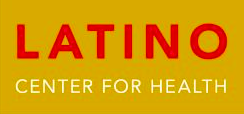
The Latino Center for Health provides leadership for community-engaged research through capacity building and authentic partnerships with community stakeholders to promote impactful improvements in the health and well-being of Latinx communities in Washington state, regionally, and nationally.
Learn More Diversity, Equity & Justice | Health & Well Being |
LSJ courses analyze the meaning of justice, the methods used in efforts to realize it, the politics of rights, and the complex roles that law and legal institutions play in structuring social life. Many courses analyze these issues in comparative perspective. Coursework emphasizes close reading of key texts, active classroom engagement with complex ideas, and…
Learn More Advocacy & Civic Engagement | Diversity, Equity & Justice | Policy & Law |
Most cities lack the capacity to fully address sustainability goals. Meanwhile, ideas and human capacity abound within universities. UW is a powerhouse of research and innovation on all aspects of urban life, but this knowledge isn’t always available to communities. Through Livable City Year, UW faculty and students from multiple disciplines work on high-priority projects…
Learn More Advocacy & Civic Engagement | Design & Building | Innovation & Technology | Land Use & Planning |
Our intent is to create a classification system that will allow readers to easily comprehend (i.e., “see”) a broad range of neighborhoods on the basis of racial composition with an explicit eye towards the notion of diversity. The classification system emerged from detailed explorations of the impact of many configurations of census tract racial composition…
Learn More Data Science & Spatial Analysis | Diversity, Equity & Justice | Housing & Homelessness |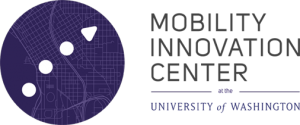
The University of Washington and Challenge Seattle — a private sector initiative of 17 of the Seattle region’s CEOs to address issues that will determine the region’s future — are committed to advancing our region’s economy and our quality of life by helping to build the transportation system of the future. Advancing our region’s goal…
Learn More Data Science & Spatial Analysis | Economy & Development | Infrastructure & Transportation | Innovation & Technology |MESA Air is designed to examine the relationship between air pollution exposures and the progression of cardiovascular disease over time. The United States Environmental Protection Agency funds the ten-year study, which involves thousands of participants, representing diverse areas of the United States. The MESA Air Pollution study is headquartered at the University of Washington, but…
Learn More Health & Well Being | Infrastructure & Transportation |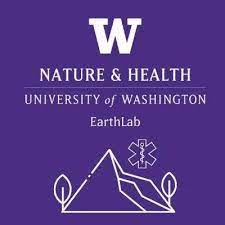
Nature and Health seeks to understand the connections between nature and human health and well-being. We work to translate that understanding into programs, practices, policies, and the design of healthcare, educational, and community settings that benefit all people and nature.
Learn More Advocacy & Civic Engagement | Climate & Energy | Education | Health & Well Being | Natural Resources & Environment |
We are the outreach arm of the University of Washington School of Public Health, bringing academia and practice communities together. We do this by offering valuable academic resources to the practice community and conveying everyday-practice perspectives to academia. We maintain strong partnerships locally, regionally, and nationally, placing a particular focus on the needs of public…
Learn More Health & Well Being |
The mission of the Northwest Climate Adaptation Science Center is to deliver science to help fish, wildlife, water, land and people adapt to a changing climate. The goal of the center is to help safeguard the Northwest’s natural and cultural resources by providing managers and policy-makers across Washington, Oregon, Idaho and Western Montana with timely,…
Learn More Climate & Energy | Data Science & Spatial Analysis | Land Use & Planning | Natural Hazards | Natural Resources & Environment | Water |
With generous support from the local construction industry in Seattle, the Department of Construction Management took on an ambitious project to develop a nearby research and education center at the old naval base at Sand Point. CERC features 25,000 square feet of space on two levels, providing a home for three areas of research and…
Learn More Design & Building | Innovation & Technology |
To monitor earthquake and volcanic activity across the Pacific Northwest, the University of Washington and the University of Oregon cooperatively operate the Pacific Northwest Seismic Network (PNSN). The PNSN is sponsored by the U.S. Geological Survey (USGS), the U.S. Department of Energy, the State of Washington, and the State of Oregon. Beginning in 1969 with…
Learn More Climate & Energy | Data Science & Spatial Analysis | Health & Well Being | Infrastructure & Transportation | Land Use & Planning | Natural Hazards | Natural Resources & Environment | Security & Privacy |
With dual themes of safety and sustainability, PacTrans serves as an engine and showcase for transportation research, education, and workforce development in the Pacific Northwest. PacTrans is a coalition of transportation professionals and educators from Oregon State University (OSU), the University of Alaska, Fairbanks (UAF), University of Idaho (UI), University of Washington (UW), and Washington…
Learn More Economy & Development | Infrastructure & Transportation |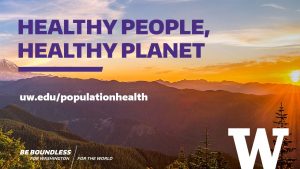
The University of Washington aspires to be the world’s leading university in population health. On May 3, 2016, President Ana Mari Cauce launched a groundbreaking Population Health Initiative by inviting the University community and partners to join in developing a 25-year vision to advance the health of people around the world by leveraging capabilities and…
Learn More Advocacy & Civic Engagement | Arts & Culture | Climate & Energy | Design & Building | Diversity, Equity & Justice | Economy & Development | Food | Health & Well Being | Housing & Homelessness | Land Use & Planning | Natural Hazards | Natural Resources & Environment | Water |
The Program on Climate Change amplifies the University of Washington’s exceptional range of expertise in climate related fields. Interaction among faculty through PCC activities promotes the integration of existing observational and modeling efforts within and between individual departments, providing a powerful synthesis approach for addressing the problems of climate change. Through courses, events, and planning…
Learn More Climate & Energy | Data Science & Spatial Analysis | Education | Health & Well Being | Land Use & Planning | Natural Hazards | Natural Resources & Environment | Water |The Natural Hazards Reconnaissance Facility, known as the RAPID, is part of the Natural Hazards Engineering Research Infrastructure (NHERI) network supported by the National Science Foundation (NSF). The RAPID Facility's mission is to enable transformative research by providing natural hazard and disaster researchers with the resources and support needed to collect, process, and analyze perishable…
Learn More Data Science & Spatial Analysis | Innovation & Technology | Natural Hazards |
The Relational Poverty Network convenes a community of scholars, working within and beyond academia, to develop conceptual frameworks, research methodologies, and pedagogies for the study of relational poverty. Launched at a historical moment of dramatic income inequality and enforced austerity in the global North, the RPN thinks across geographical boundaries to foster a transnational and…
Learn More Data Science & Spatial Analysis | Diversity, Equity & Justice |The Affiliate Fellows Program brings together thought leaders from industry, faculty from the College of Built Environments, and students on the Master of Science in Real Estate for an 8-month program to examine real estate issues in the built environment. The goals of the Fellows program are to foster interaction between students and the academic…
Learn More Design & Building | Economy & Development | Housing & Homelessness | Infrastructure & Transportation | Land Use & Planning |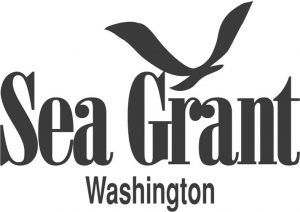
Washington Sea Grant (WSG) is a catalyst for innovative marine research and education opportunities. Research is the cornerstone of WSG’s mission to help people to better understand and address the challenges facing our oceans and coasts. As part of a national partnership funded and coordinated by the National Oceanic and Atmospheric Administration (NOAA) through a…
Learn More Climate & Energy | Innovation & Technology | Natural Hazards | Natural Resources & Environment | Water |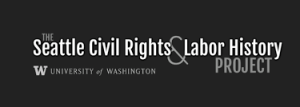
The Seattle Civil Rights & Labor History Project represents a unique collaboration involving community groups, UW faculty, undergraduate and graduate students, and their efforts to map, archive and disseminate historic information on racial segregation and civil rights activism within Seattle.
Learn More Advocacy & Civic Engagement | Diversity, Equity & Justice | History & Preservation | Housing & Homelessness |
SHARE Lab (Safety and Health Advancement through Research and Education Laboratory) embarks on innovative research that promotes the wellbeing of construction taskforce and/or reduces occupational injuries and illnesses for the construction industry. Example research projects completed at the lab include: sensor based physiological status monitoring on construction workers, video gaming development for the training and…
Learn More Health & Well Being | Innovation & Technology |
For over 30 years the Social Development Research Group (SDRG) has sought to investigate and promote healthy behaviors and positive social development in youth and adults. SDRG is a recognized leader in the field of prevention research. Our efforts to understand how risk and protective factors influence development have resulted in hundreds of articles in…
Learn More Diversity, Equity & Justice | Education | Health & Well Being |
A strong ITS research program and its corresponding supporting laboratory are indispensable resources for high-quality training of ITS professionals and solving traffic problems in the Puget Sound region. Major objectives of the STAR Lab are: support advanced ITS research; cultivate ITS professionals; explore effective solutions to transportation problems; provide hand-on training instruments and software applications…
Learn More Infrastructure & Transportation |The Supply Chain Transportation and Logistics Center (SCTL) is headed by Anne Goodchild and Barb Ivanov and investigates the logistics and infrastructures for local and global supply chains critical to the economics and well-being of urban systems world-wide. The SCTL Center is a world leader in supply chain, transportation and logistics research and education serving…
Learn More Data Science & Spatial Analysis | Infrastructure & Transportation | Innovation & Technology | Policy & Law |In the Sustainable Transportation Lab, we study how to make our transportation system more economically viable, environmentally benign, while ensuring access to opportunities for all.
Learn More Climate & Energy | Data Science & Spatial Analysis | Diversity, Equity & Justice | Economy & Development | Infrastructure & Transportation | Land Use & Planning |
The Tech Policy Lab is a unique, interdisciplinary collaboration at the University of Washington that aims to enhance technology policy through research, education, and thought leadership.
Learn More Innovation & Technology | Policy & Law | Security & Privacy |The Technology & Social Change Group (TASCHA) at the University of Washington Information School explores the design, use, and effects of information and communication technologies in communities facing social and economic challenges. With experience in over 50 countries, TASCHA brings together a multidisciplinary network of researchers, practitioners, and policy experts to advance knowledge, create public…
Learn More Advocacy & Civic Engagement | Data Science & Spatial Analysis | Economy & Development | Innovation & Technology |
The CCDE strives to be a space where our community of students, faculty, staff, and alumni gather to promote greater equity. Through research collaborations, networking opportunities, action-oriented classes, mentorship programs, and community events we engage in dialogue to think critically about race and its intersections, to interrupt privilege, and ultimately to change the structures of…
Learn More Advocacy & Civic Engagement | Diversity, Equity & Justice |M9 is a new NSF Hazards SEES project (EAR-1331412) bringing together a broad team of University of Washington researchers with the goal of reducing the catastrophic potential of Cascadia megathrust earthquakes on the social, built, and natural environments through research advances in methodologies, warnings, and community planning.
Learn More Land Use & Planning | Natural Hazards | Security & Privacy |The Minimum Wage Study is a research effort dedicated to providing rigorous analysis of the impact of minimum wage ordinances in metropolitan regions and states. We seek to provide insights that will be useful for policymakers and scholars. As more states and localities move forward with plans to raise the minimum wage, this research will…
Learn More Diversity, Equity & Justice | Economy & Development | Policy & Law |
The PNW CESU is a partnership for research, technical assistance, and education to enhance understanding and management of natural and cultural resources. Established in 2000 as a cooperative venture, the PNW CESU consists of 12 federal agencies dedicated to natural and cultural resource management and 19 leading academic institutions, four non-profits, one non-governmental organization, and…
Learn More Climate & Energy | Land Use & Planning | Natural Resources & Environment | Policy & Law |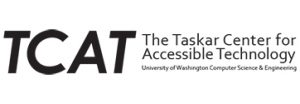
The Taskar Center for Accessible Technology (TCAT) at the University of Washington Department of Computer Science & Engineering focuses on developing and deploying technologies that will increase independence and improve quality of life for individuals with motor and speech impairments. We aim to enhance access to everyday technologies through the development of user-focused novel interfaces,…
Learn More Data Science & Spatial Analysis | Diversity, Equity & Justice | Innovation & Technology |
The THINK (Transportation-Human Interaction and Network Knowledge) Lab studies the sustainability and resilience of a city through the lens of human beings interacting with the physical environment. We generate new knowledge and insights for use in city planning, infrastructure development and policy design. Our research results facilitate real-time disaster response and recovery efforts. Our work…
Learn More Infrastructure & Transportation | Land Use & Planning | Natural Hazards | Policy & Law | Security & Privacy |
United around education, our alliance of community and education partners, with faculty and students at the University of Washington’s College of Education, supports youth, and especially children of color, by expanding their opportunities to learn. Within a collective commitment to justice for underserved populations, Unite:Ed co-creates projects and strategies that advance equity in the communities…
Learn More Advocacy & Civic Engagement | Diversity, Equity & Justice | Education |
The University of Washington Botanic Gardens has two sites: the Washington Park Arboretum and the Center for Urban Horticulture. Our mission is sustaining managed to natural ecosystems and the human spirit through plant research, display, and education. The 230-acre Arboretum includes a vibrant collection of more than 40,000 plants from around the world with trails…
Learn More Data Science & Spatial Analysis | Design & Building | Natural Resources & Environment |Urban Commons Lab in the College of Built Environments at the University of Washington focuses on research and public service that contribute to civic engagement and democratization of contemporary city-making. We approach Urban Commons as a spatial and social practice that embodies reciprocity, sharing, civic engagement, and collective actions. Through research, and community design projects…
Learn More Advocacy & Civic Engagement | Diversity, Equity & Justice | Education |
The Urban Ecology Research Laboratory (UERL) is an interdisciplinary team of UW researchers and Ph.D. students studying cities as urban ecosystems. The lab studies urban landscapes as hybrid phenomena that emerge from the interactions between human and ecological processes, and the interactions between urban development and ecosystem dynamics. Specific areas of research include: complexity and…
Learn More Climate & Energy | Data Science & Spatial Analysis | Land Use & Planning | Natural Hazards | Natural Resources & Environment |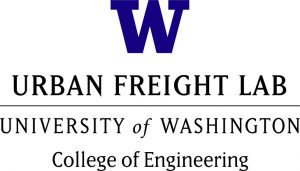
The Urban Freight Lab (UFL) brings together transportation engineers, urban planners, retailers, freight carriers, technology companies supporting transportation logistics, and multifamily and commercial developers and operators. The UFL’s Final 50 Feet Research Program analyzes processes, develops potential solutions, and pilot tests operational improvements in the final leg of the urban goods delivery system. The final…
Learn More Data Science & Spatial Analysis | Design & Building | Infrastructure & Transportation | Innovation & Technology |
The Urban Infrastructure Lab (UIL) brings together students and faculty across numerous disciplines with a shared interest in the planning, governance, finance, design, development, economics, and environmental effects of infrastructure. The interests of the UIL span the systems critical to economic and social well-being, such as energy, water, health, transportation, education, and communications. Across these…
Learn More Climate & Energy | Design & Building | Economy & Development | Education | Health & Well Being | Infrastructure & Transportation | Innovation & Technology | Land Use & Planning | Policy & Law | Security & Privacy |Sponsored by the Northwest Modeling Consortium, we have run the MM5 and now WRF mesoscale models operationally at high resolution since 1995. Currently, the WRF is run at 36 km horizontal resolution over the eastern Pacific, 12 km over the Pacific Northwest, 4 km over Washington, Oregon, and Idaho, and 1.3 km over Washington, northern…
Learn More Climate & Energy | Data Science & Spatial Analysis | Natural Hazards | Natural Resources & Environment |RSGAL’s research goal is to understand multiscale and multidimensional dynamics of landscape change through the application of remote sensing, GIS and geospatial tools. The lab develops tools necessary to analyze hyper-resolution remotely sensed data by exploiting spatial, temporal and spectral capabilities of the data. RSGAL work focuses on the application of high spatial resolution remote…
Learn More Data Science & Spatial Analysis | Land Use & Planning | Natural Resources & Environment |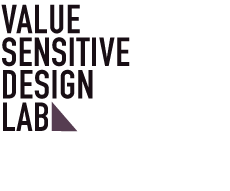
Pioneered in the 1990s, value sensitive design seeks to provide theory and method to account for human values in a principled and systematic manner throughout the design process. Central to this approach is engaging our moral and technical imaginations. We are designers and researchers, thinkers and doers. We design toolkits and methods. We work on…
Learn More Diversity, Equity & Justice | Infrastructure & Transportation | Innovation & Technology |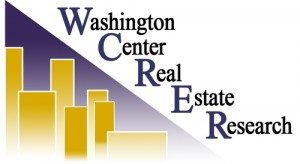
The Washington Center for Real Estate Research (WCRER) was initially established by the Board of Regents at Washington State University to provide a bridge between academic study and research on real estate topics and the professional real estate industries. It served that mission at WSU until merging with the Runstad Center at the beginning of…
Learn More Housing & Homelessness | Infrastructure & Transportation | Land Use & Planning | Policy & Law |
The Washington Institute for the Study of Inequality and Race (WISIR) is an interdisciplinary research center dedicated to bringing the tools of critical theory and contemporary social science to the analysis of social, economic, and political inequality along lines of race, ethnicity, gender, sexuality, and class. The center seeks to enhance public understanding of these…
Learn More Data Science & Spatial Analysis | Diversity, Equity & Justice | Economy & Development | Policy & Law |
The Washington State Transportation Center (TRAC) is a cooperative, interdisciplinary transportation research agency. Its members, Washington State University (WSU), the University of Washington (UW), and the Washington State Department of Transportation (WSDOT), formed TRAC in 1983 to coordinate transportation research efforts—both state and commercial, public and private—and to develop research opportunities both nationally and locally.…
Learn More Data Science & Spatial Analysis | Infrastructure & Transportation | Innovation & Technology | Land Use & Planning | Policy & Law |
The West Coast Poverty Center works to bridge the gaps between antipoverty research, practice, and policy by connecting scholars, policymakers and practitioners; facilitating important social policy research; magnifying the reach of new knowledge; and fostering the next generation of antipoverty scholars. A collaborative venture of the UW School of Social Work, the Daniel J. Evans…
Learn More Advocacy & Civic Engagement | Diversity, Equity & Justice | Economy & Development | Policy & Law |
The Wetland Ecosystem Team (WET) conducts basic and applied research on coastal wetland ecology. Our mission is to advance scientific knowledge of shallow-water and estuarine coastal wetland ecosystems to better understand natural and anthropogenic sources of their variability and change. We provide the research infrastructure to support graduate students in order for them to contribute…
Learn More Food | Natural Resources & Environment | Water |